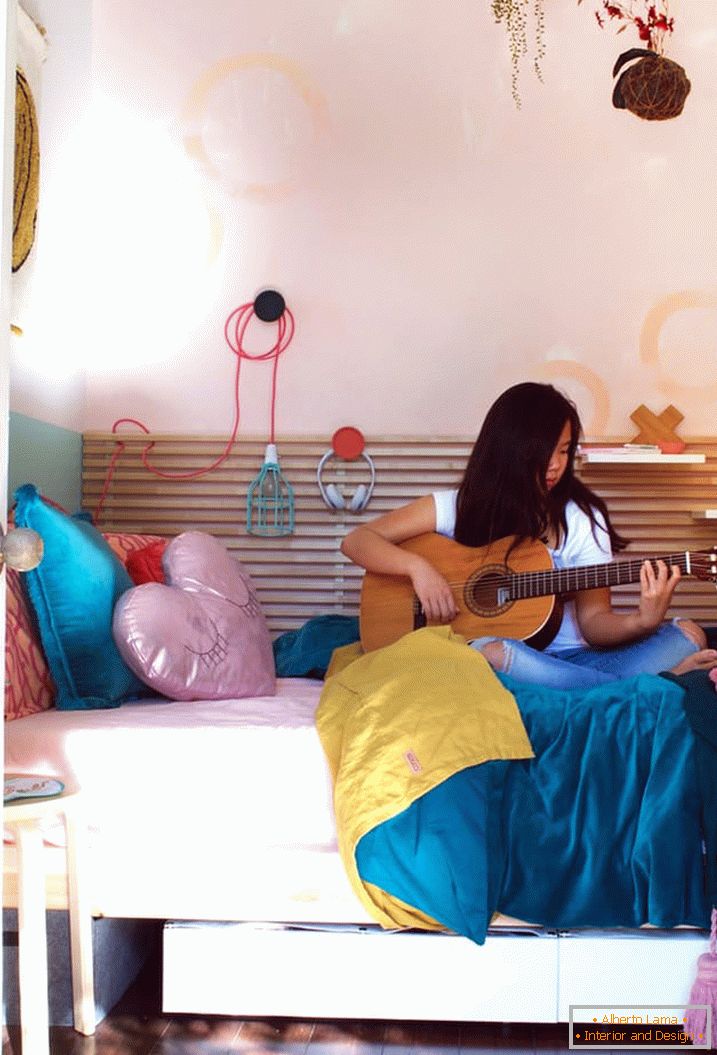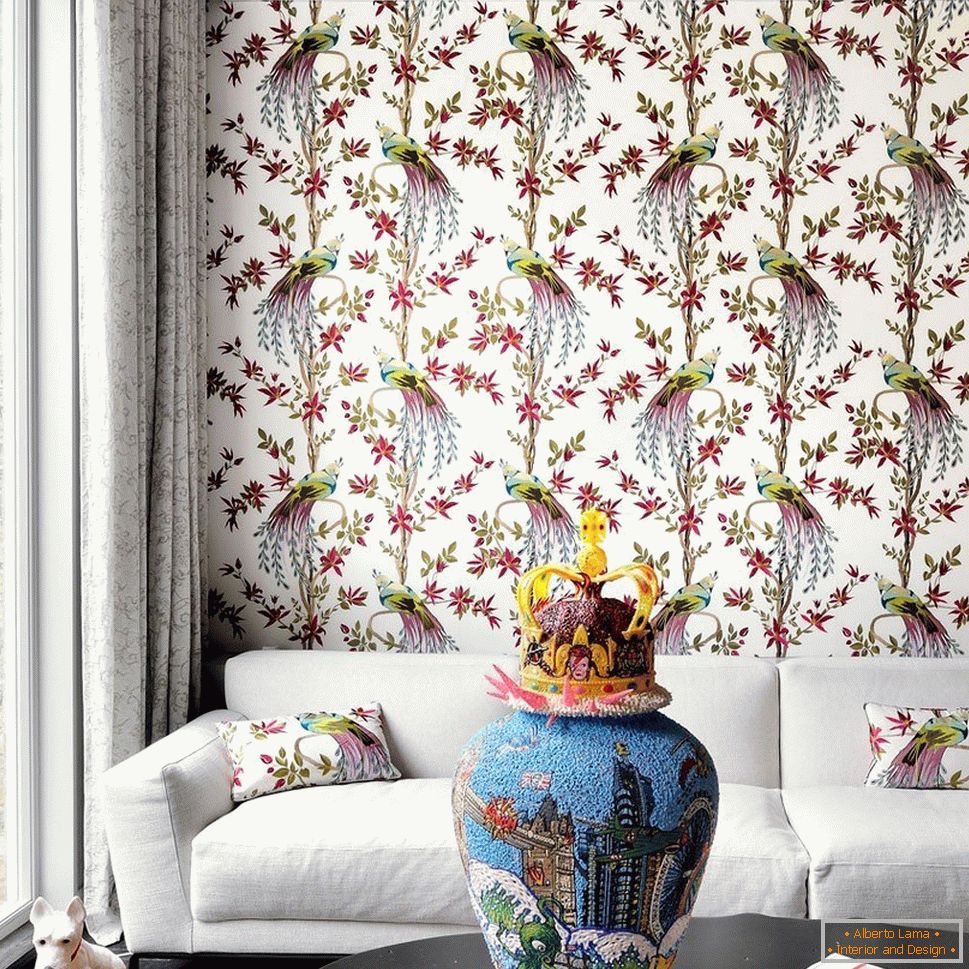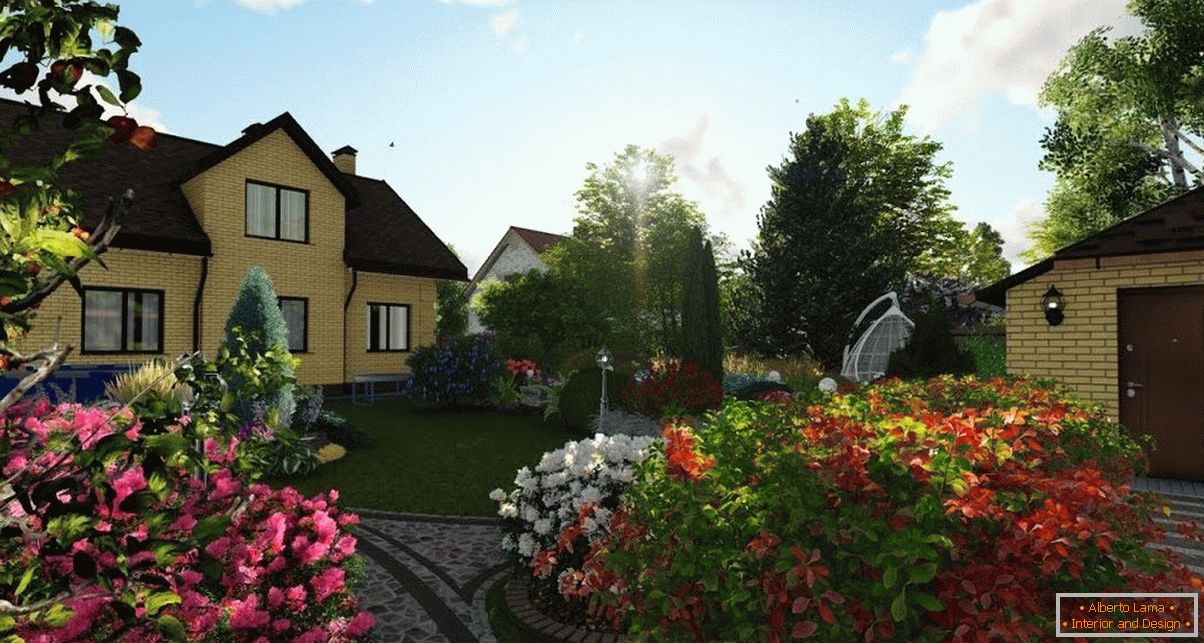
The country house and the plot attached to it become the limit of the city's dreamer's dreams. No neighbors, close parking lots and permanent restrictions. This small private corner gives owners a unique opportunity to create their own housing "paradise", which will exist by its own rules. Landscape design of the 12 hectare site should begin with the development of the project. Professionals will do it for you faster and better, but not who prefer to master this complex science independently. Landscape design is akin to designing an interior, it will also exactly affect the comfort and comfort on the site, where in summer the owners will spend most of the time. Let's try to figure out where to begin planning, and how to properly place the functional zones within twelve hundred.
Although the location and size of the above zones is calculated either by the owner himself or by the designer in accordance with his wishes, there are also generally accepted norms.
The smallest part of the land is an apartment building. It, as a rule, occupies no more than 10% of the total area. Another 15-20% are taken under the recreation area. The rest is given for the destruction of flora and possibly fauna (if the maintenance of domestic animals is planned). In the complete set with them always there are farm buildings which are put for maintenance of greater comfort at care of an economy. If it seems that the space is not enough, then the individual objects are arranged in zones with conditional boundaries. Alternatively, the garden can be combined with a rest area. The shadow of the trees will give the shade a hot summer and will hide from the wind in the winter. Also take into account the features of the relief: slopes, lowlands, natural objects, which were marked on the original scheme. They can become a significant obstacle to the placement of certain buildings.
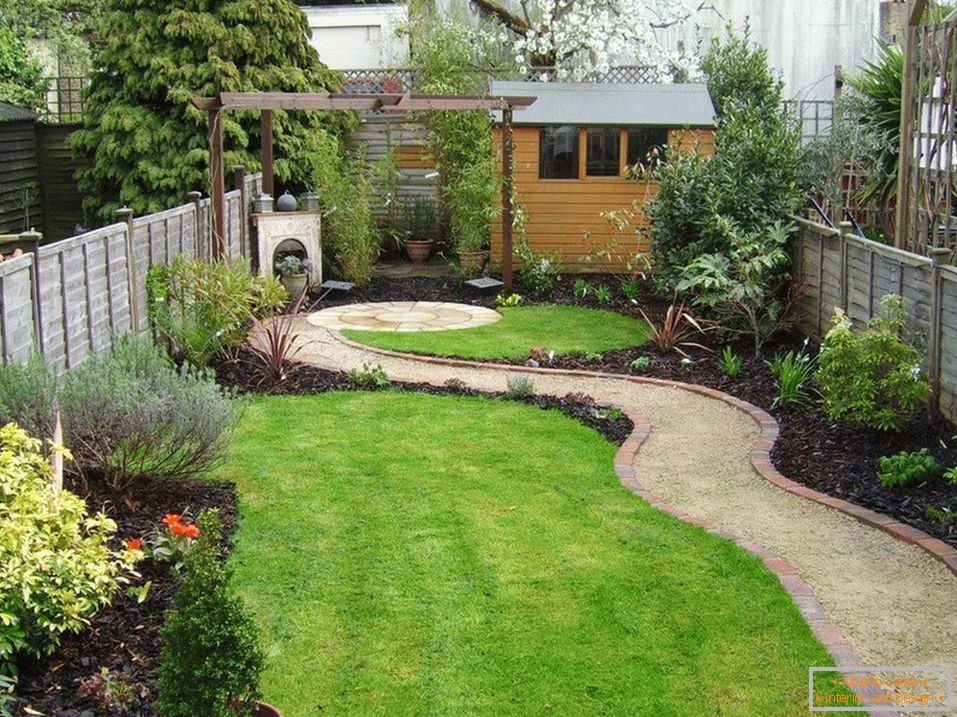
The planning of the suburban area should be approached from a rational point of view. The landscape will be beautified by the design, its polishing, but the uncomfortable arrangement of objects will spoil the whole impression. Besides, it will probably be too late to change anything. Better before implementing your project, contact a specialist for approval of the plan. An experienced designer will help you find mistakes and correct them on time.
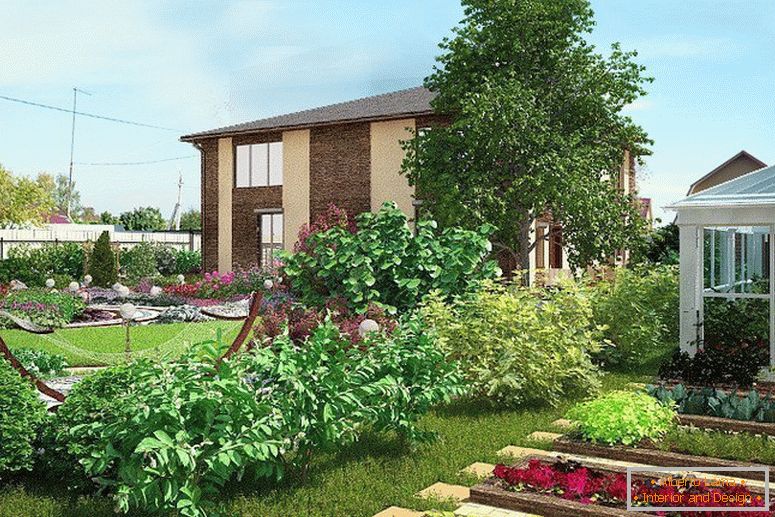
Rules and norms for the location of objects
In addition to their desires, it is necessary to take into account generally accepted norms, which are regulated by law. Buildings on your land should:
- Do not disturb neighbors;
- Do not create obstacles to the free movement of people or vehicles in public places (if near a street);
- Provide safe accommodation for the owners.
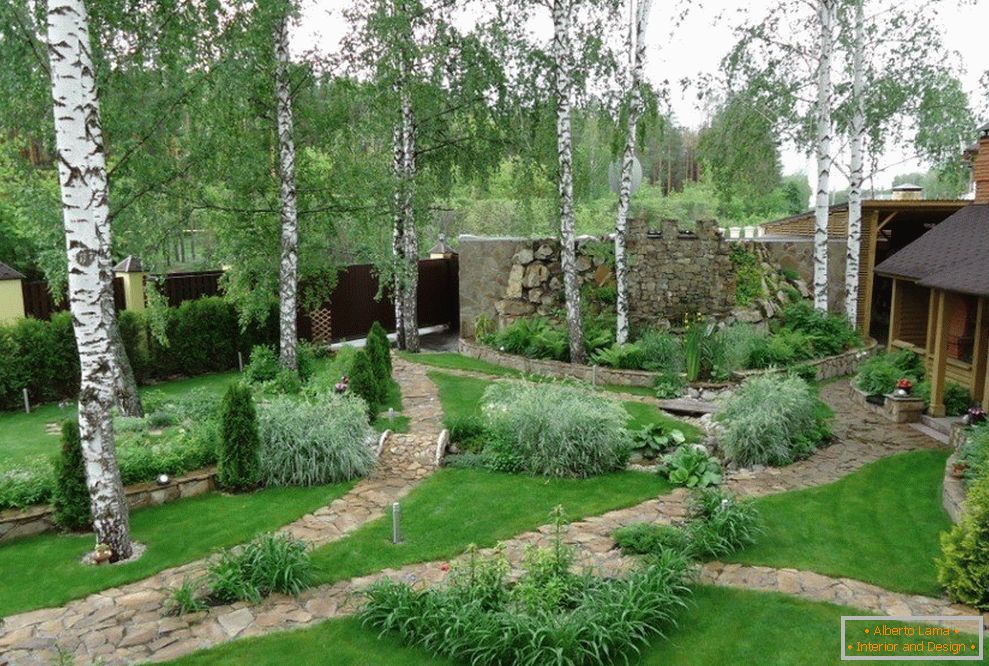
These three aspects can be expressed in figures. The distance from residential buildings to the neighboring fence should be no less than 4 m. From low bushes observe a distance of 1.5 m, and from high and dwarf trees - 4 m and 3 m, respectively. Outbuildings should be built at a distance of at least 1 m, and those buildings containing animals - 4 m. For their own safety, between buildings of different types, the following distances should be observed:
- For stone and brick houses it is necessary to "retreat" along 6 m;
- If the structure has wooden ceilings, then the permissible distance is increased by another 2 m;
- Near houses of wood, it is not permitted to erect other structures closer than 15 m.
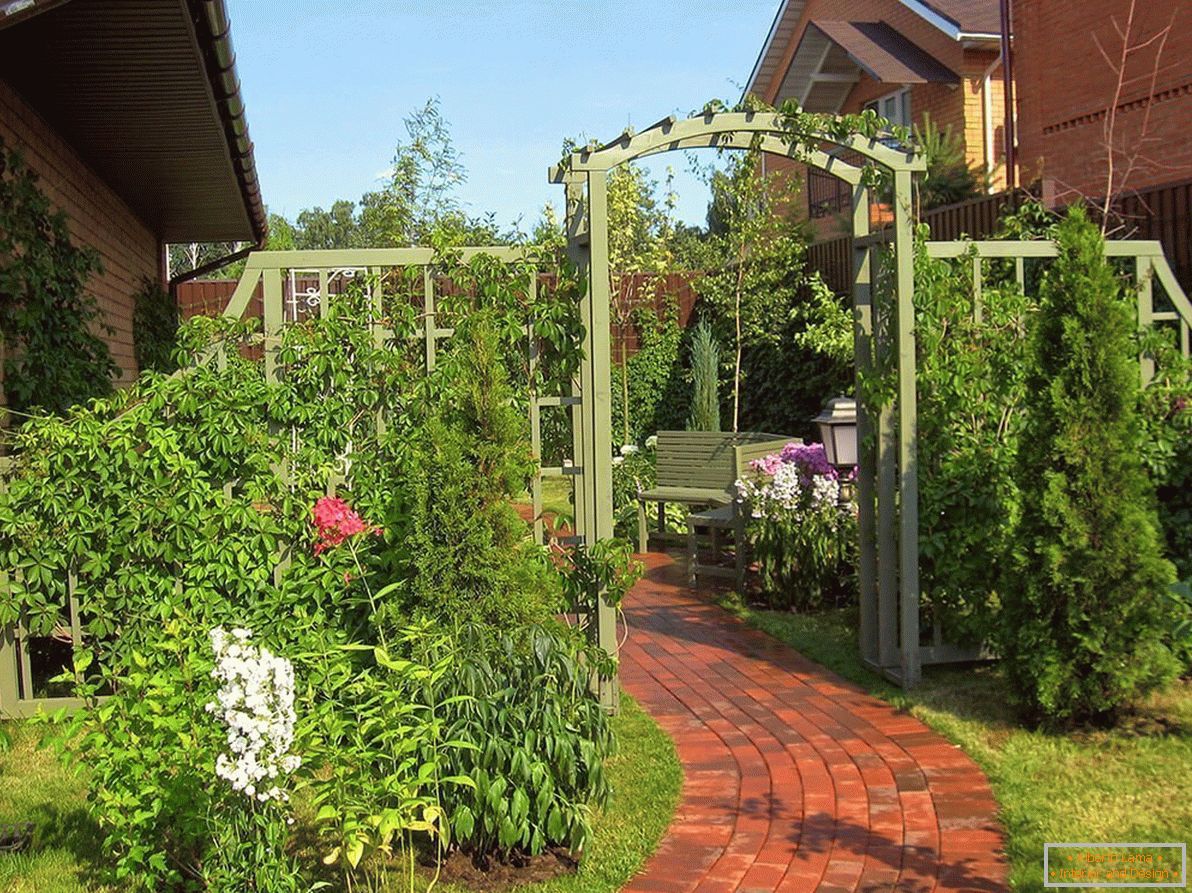
These norms are established in order to comply with fire safety. As for the sanitary rules, the toilets and households. Buildings with animals must be at least 12 m away from residential buildings. Cesspools and showers should be installed at a distance of 8 m from the house. It is not permissible near the water source (well or well) to erect sheds, where cattle will be kept, and put street toilets. Otherwise, no one can guarantee the owners of such a site that sewage with sewage will not fall into well stocks.
In the event of violations of the established rules, dishonest owners are expected not only penalties, but also requirements for the demolition of certain buildings. Experienced landscape designers know these rules "in the teeth." With such a problem only newcomers can encounter, who for the first time decided to equip the land with their own hands.
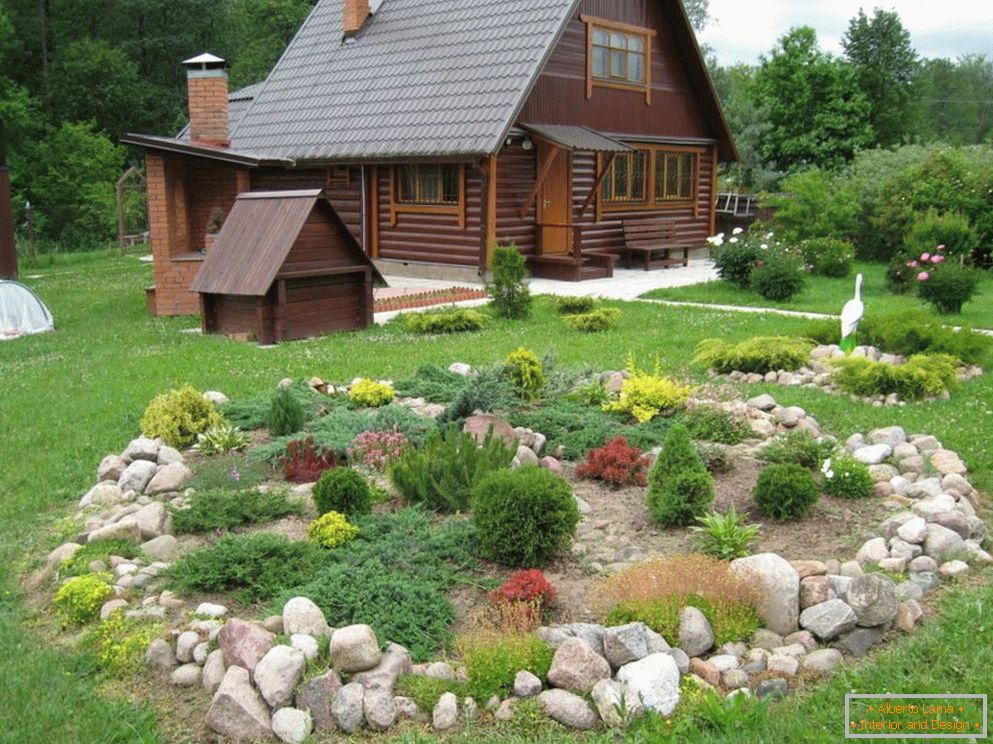
Styles of landscape design
In landscape design, as well as in the usual interior, there are styles, the unity of which is observed when decorating plots. Note the five most common:
- Classical. It is characterized by straight lines, neatly trimmed lawns and trees, strict geometry in the arrangement of buildings.
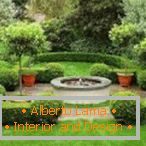
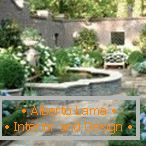
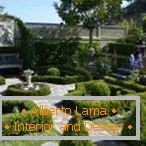
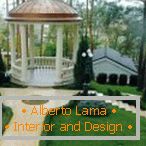
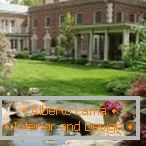
- Japanese style. The East promotes minimalism in everything. For this reason, avoid the "superfluous" in the plot and the structure, build only those that perform a specific function. From the decor will look good "winter" garden with a pond in the center of the composition.
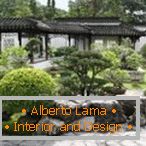
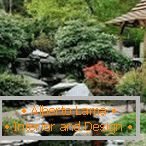
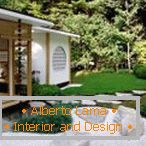
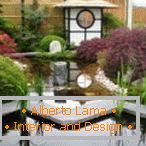
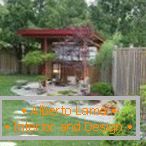
- Russian. In this direction they embody the idea of the national "village". To recreate its color, most of the buildings are made of wood, and the decoration is dominated by carvings.
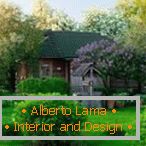
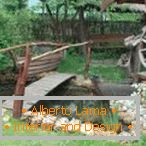
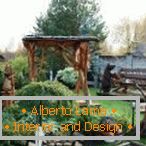
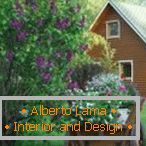
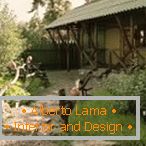
- English. The style of "freedom" that does not accept symmetry. Although the buildings and garden area have a neat, neat appearance, but on the site they can be scattered chaotically, as the soul desires. Do not forget to add "stiffness" to the landscape, decorating it with stone paths and benches or ponds with the same finish.
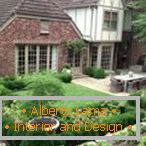
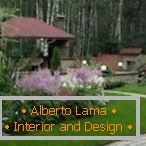
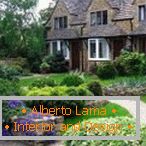
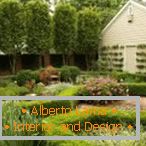
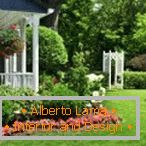
- Mediterranean style. Forget about lawns. Instead, use wide vases and baskets of flowers. All the house area is covered with a light stone or covered with gravel. Flowerpots group into picturesque compositions. The decor uses handmade items.
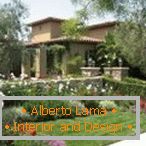

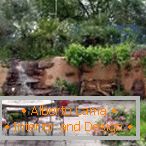
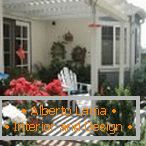
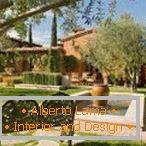
All of the above directions can be combined into one large stylistic group called "ethnics". Of course, there are other design options: Scandinavian, romantic, high-tech, country, provence, eco-style. They also live by their own laws.
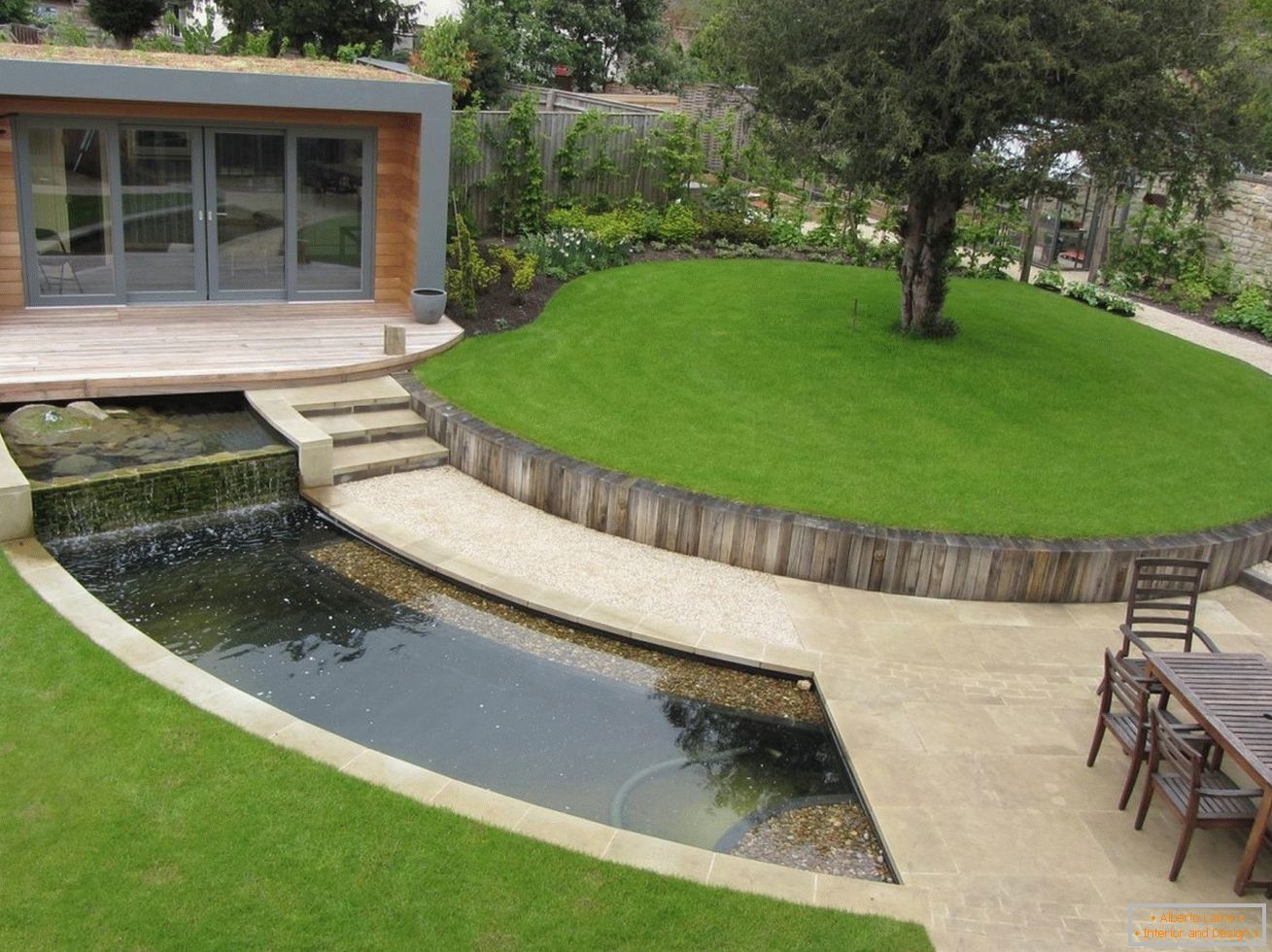
Housing arrangement
The dwelling house will be the conditional center of the composition, although it is seldom located exactly in the middle of the plot. If there is a quiet street near the fence, the main building and the closed courtyard are usually set up closer to it. Wade through the labyrinth of garden paths in order to go out into the street, would be too uncomfortable. Quite a different situation develops with a lively highway. From it it is better to fence off and move the construction to the far corner. Otherwise, the noise of cars and regular passers-by will interfere with calm sleep and rest. If the plot is embossed and most of it is in the valley, the house is erected on the highest point of the slope. This option will save you from the danger of flooding. The adjacent territory is given under the terraces, which will create a picturesque composition. When laying the foundation it is necessary to take into account the type of soil and the level of occurrence of sewage.
See also: Landscape design of the site at 6 hectare - 40 photos 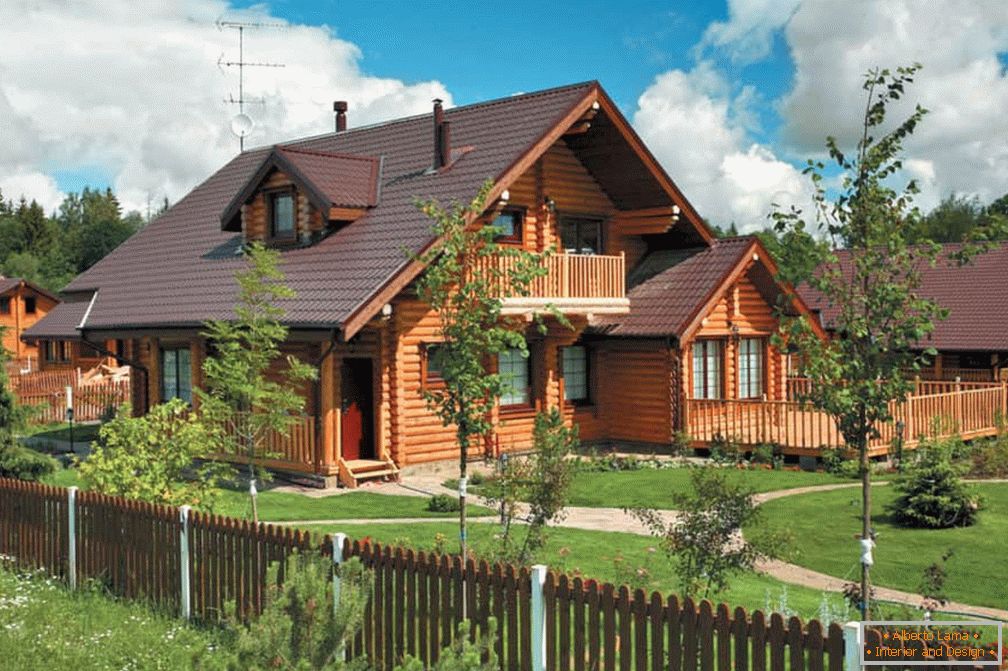

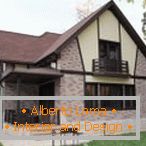
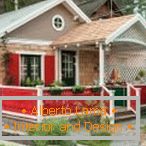
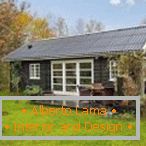
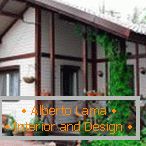
Arrangement of a garden plot
As already mentioned above, the orchard farming occupies a large part of the area. Usually it is built in the "deaf" part of the site, which is removed from the street. Hardly anyone will like to open the gate and immediately "from the doorway" contemplate the cucumber-tomato landscape. The garden is usually combined with a garden, which becomes a "buffer" zone between it and a recreation area or residential buildings. Bushes are planted around the perimeter of the "green" zone or inside it as conditional borders that will separate some beds from others. If there is a busy street or highway near the site, then the garden and garden area is removed from it to the maximum distance. Dust will settle on the leaves, and exhaust fumes will not add value to the fruits.
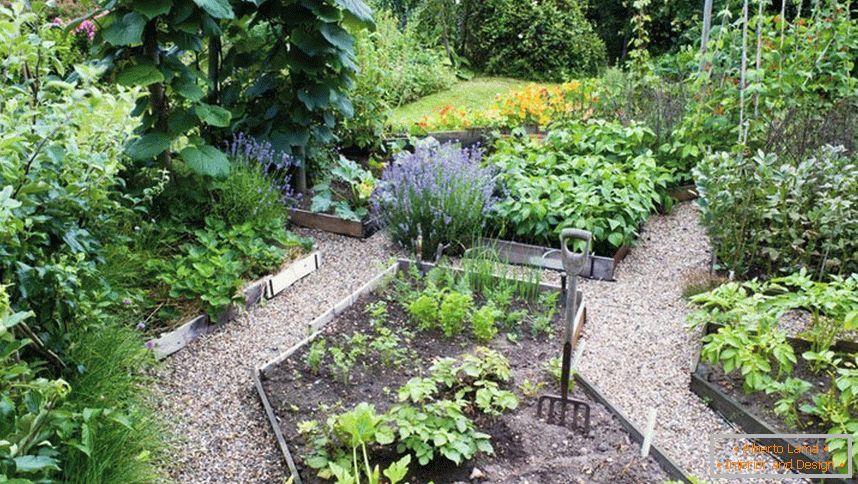
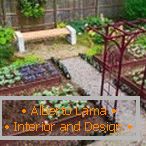
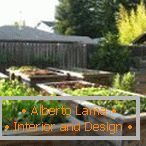
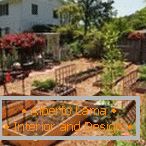
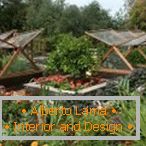
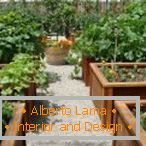
Recommendations for the selection of vegetation
As for the vegetation, then of course the choice is for the owners. Some adore to care for capricious eggplants, while others prefer a simpler greens or radish. Consider only the peculiarities of the climate. The garden can be excluded at all, if the owners prefer to "lazily" take care of the fruit trees in the garden. As an alternative, leave only a small ridge with greens and flower beds. The latter usually decorate the front patio. It is not superfluous to plant a couple of Christmas trees, thuja or pine. Over time, the trees will stretch and create a shadow. In addition, throughout the year on the site will spread a pleasant, tart coniferous aroma and delight the eye with "eternal" greens. Do not recommend planting trees too close to the buildings, since after a decade or so the entrenched root system can raise the foundation. For lovers of Russian color, a variant with native birches is stored. After 5-6 years of violent growth without damage to the trees, you can collect juice in the spring. The garden minimum usually consists of a pear, apple, cherry and plum. In a warmer climate cherries get along well. From shrubs usually prefer raspberries, gooseberries and currants. Of course, no kitchen garden can do without "permanent" beds with strawberries. To facilitate the care of it, it is recommended to cover the entire area with a special film with slots under the bushes. Thus, a gentle strawberry will be protected from weed grass.
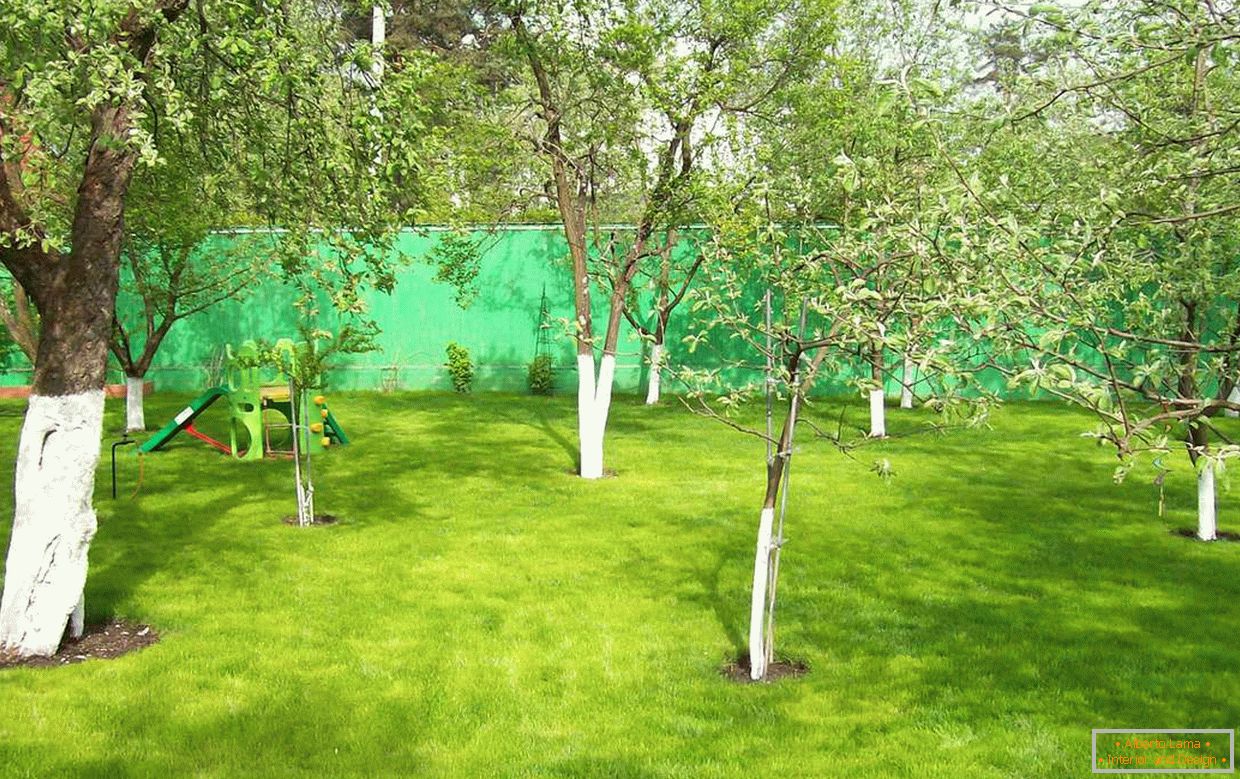
Recreation area organization
The center of the zone is the gazebo. This building is necessary for a good rest. She may be:
- Monumental of brick or wood with glazed windows and an oven inside
- Temporary, used only in the summer.
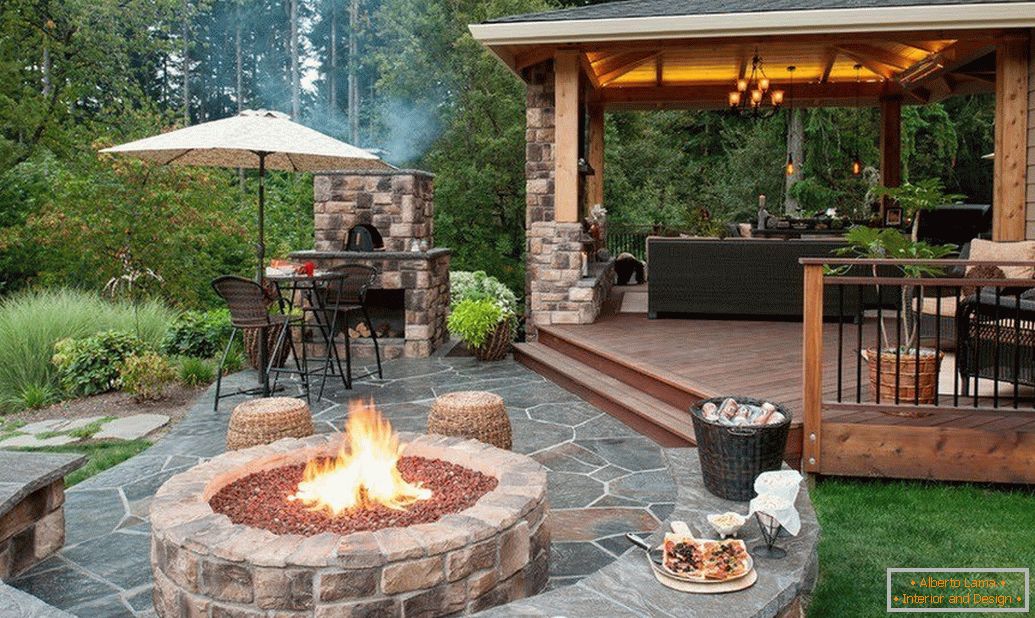
As an economic option, scenic "green" arbors are equipped. They are a wire frame on which grapes are woven. Finishes the composition of the country furniture: a table and a couple of chairs or a bench. In addition to the gazebo, set up a brazier or arrange a specially designated place for a barbecue. In more expensive options, the garden path can lead to a pool or decorative pond.

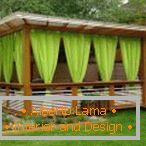
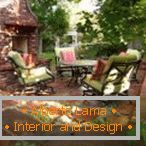
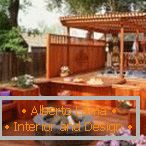
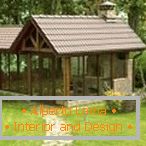
Arrangement of a children's playground
A children's playground is combined with a seating area. This will allow adults to calmly spend their leisure time preparing shish kebabs and simultaneously monitor the babies. On the site it is desirable to install a sandbox, slide and a couple of roundabouts. If it will be played by older children, it is worth considering the arrangement of a tennis court or a table for ping-pong. The hill can be "complicated": the free space under it is completed in the form of a castle or a hut.
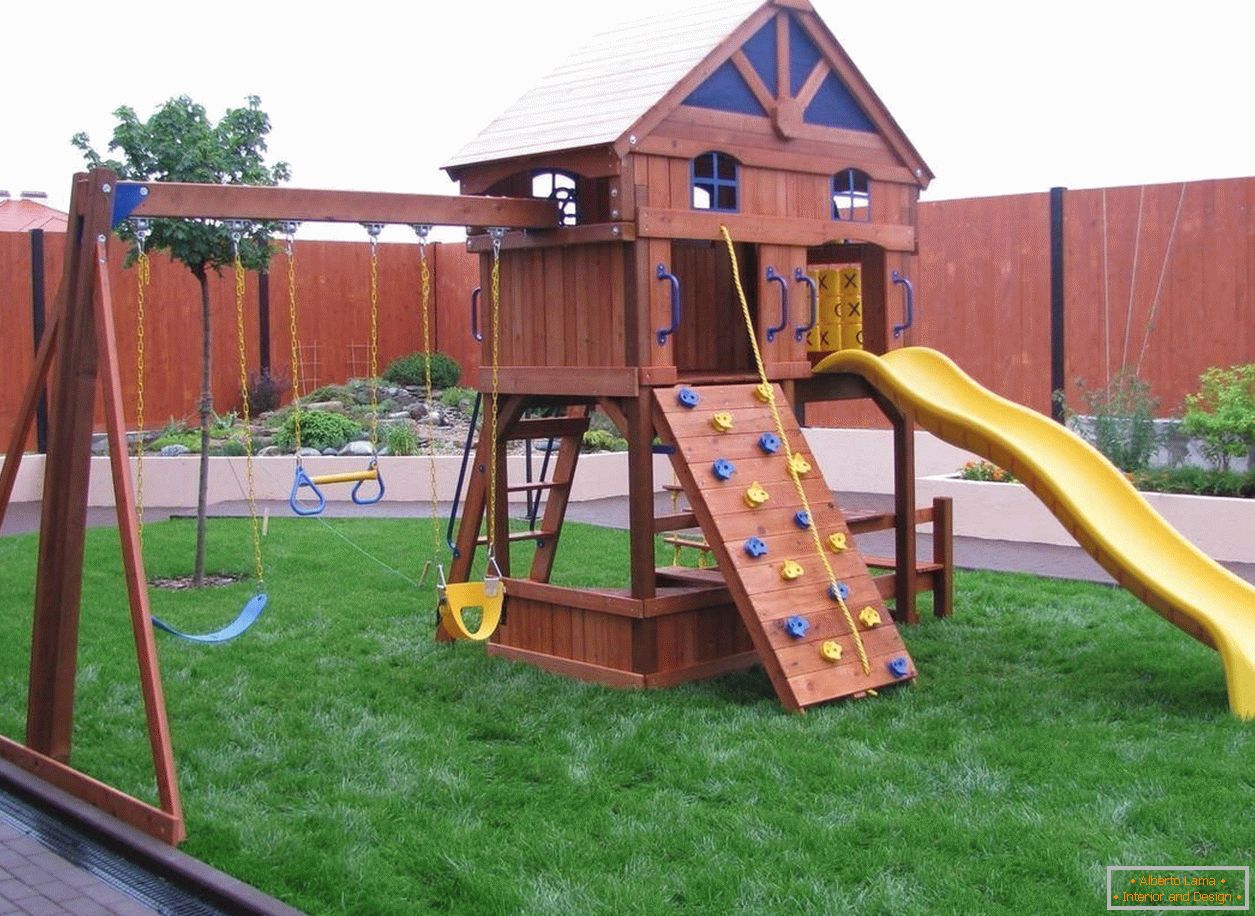
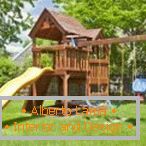
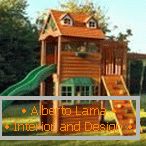
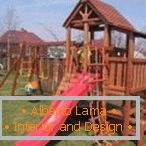
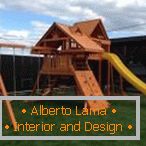
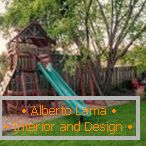
The economic zone
The economic zone включает в себя баню или душевую, гараж, сараи, летние кухни, места для хранения дров. Все эти постройки необходимы, но могут слегка портить внешний вид участка. Чтобы избавиться от негативного эффекта, строения группируют и декорируют аккуратными дорожками, по бокам которых высаживают цветочные клумбы. В результате получается маленький отдельный мирок в рамках большой площадки владений.
Read also: Design of the gazebo: what kind of view +75 photo ideas 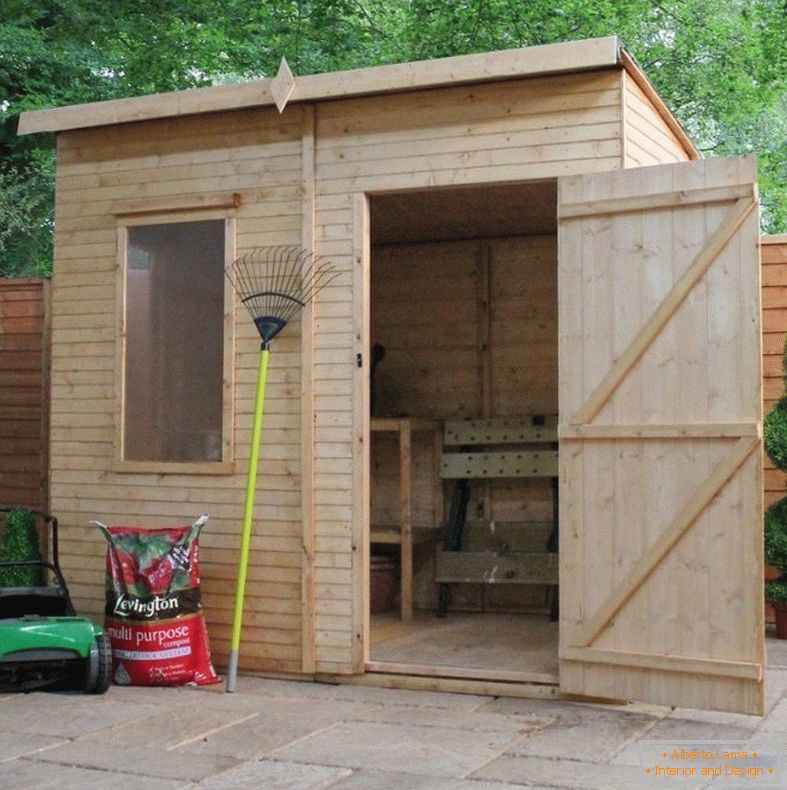
Harmonious combination of zones
Zones should not just be isolated "spots" on the landscape landscape picture, but create a single organic picture. Household buildings adjoin the garden. That in turn smoothly flows into the garden. Fruit trees will become a picturesque backdrop in front of the recreation area. Garage is usually located closer to the fence. As an option, parking for a car is attached to the house or put into its plan and erected in parallel, as part of the building. Do not forget to partition or actually divide the zones. One of the most common options is decorative fences. Also, the sites are separated from each other conditionally with the help of flower beds and garden paths.
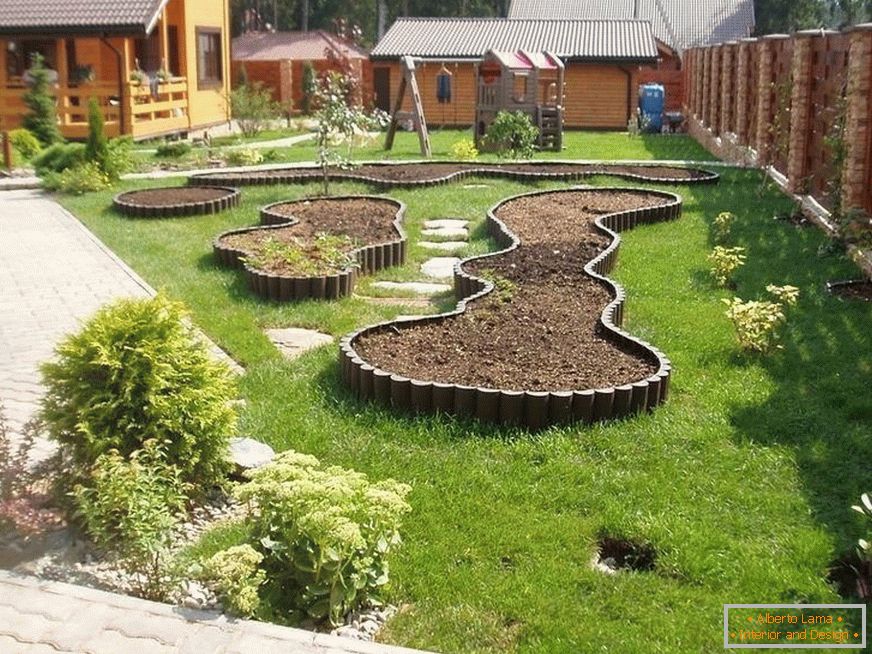
Lighting on the site
Illumination of the area of 12 hectare can not be limited to one lantern above the porch. An interesting solution will be the installation of decorative tall lanterns along the garden paths. Thus, you will be able to illuminate the farthest corners of the possessions in one fell swoop, and observe the unity of style. Do not forget to equip each building with a central lamp at the entrance. As an additional lighting used decorative lighting: figurines of gnomes and cute animals, which are put directly into the ground and help to find the way.
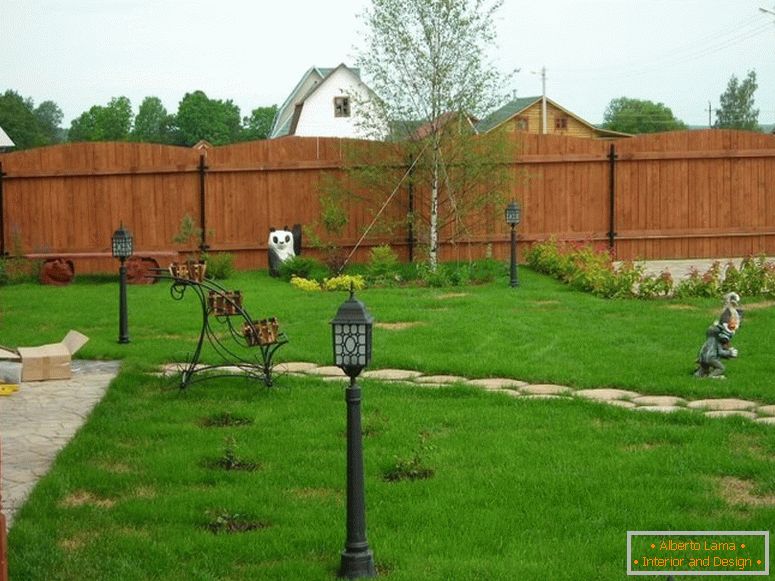
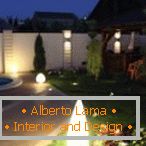
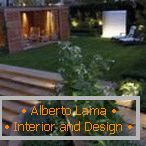
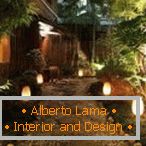
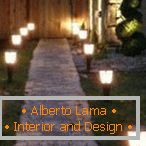
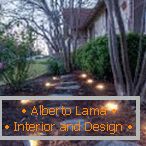
The fence is for a long time and for a long time
The construction of a site usually begins with a fence. Of course, in the first place it is erected in order to delineate their possessions. The first fence, as a rule, rough. At one of the final stages of the construction of a residential complex, it is changed to permanent. Simple fences are made of brick, stone, wood or metal sheets. It is completely ugly and unpretentious to look like slate fences. To determine the monumentality of the fence, it is necessary to assess the degree of danger that comes from the adjacent street. If this is a quiet lane where only neighbors go and drive, then you can put a decorative fence, which will reveal to outsiders a picturesque view of the house and the buildings adjacent to it. As an option, you can even consider a hedge. If there is a wide street along which hundreds of random passers-by pass each day, it is certainly better to choose a brick or stone solid fence higher than the height of a person. It is important to know. A compromise option will be the installation of a solid and high hedge from externally plain material. On the outside, it is decorated with bushes or trees planted in a row.
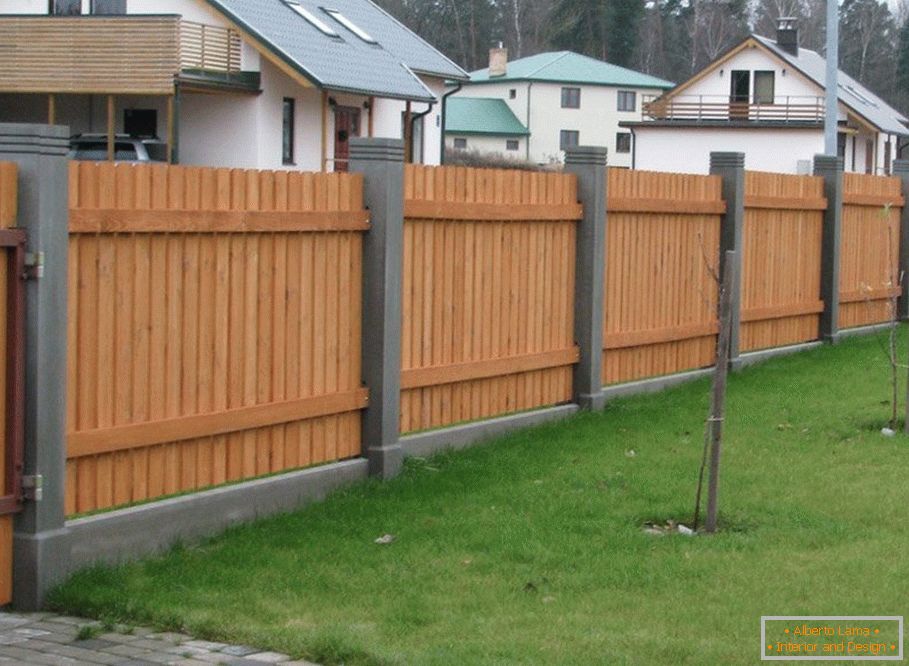
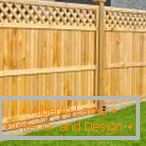
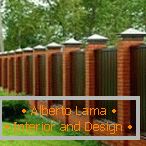
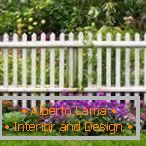
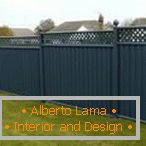
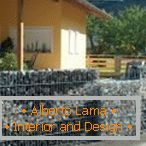
Lawn Construction
Lawn paired with paved paths gives the site a neat and noble look. It is a separate piece of land, which is sown with various species of herbaceous plants. The latter can be annual or perennial. The second option is preferable, as it will require only timely care, and not re-planting. Plants are selected for soil type and climate. Lawns are classified into three types:
- Decorative. Used only for beauty in those areas where the human foot does not step;
- Functional. In addition to a neat appearance, plants also provide additional support to the soil from shedding. The variant is relevant for the slopes of water bodies or ravines;
- Universal. They combine a decorative and "strengthening" function.
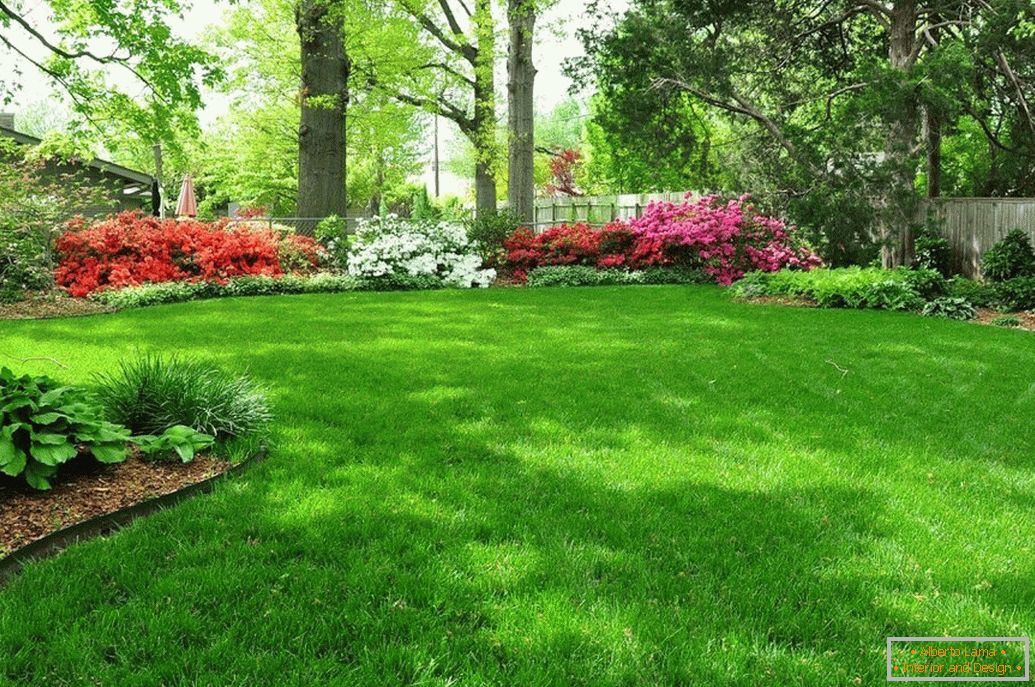
Before planting, the soil is prepared, and after the grass shoots it will require regular grooming.
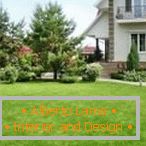
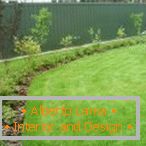
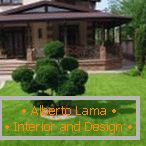
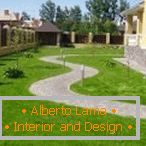
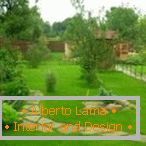
Conclusion
Planning a project for a suburban area is only half the battle. It still needs to be implemented. During construction, many face a number of problems that simply were not taken into account "on paper". For this reason, before starting, it is recommended to read as much as possible of the special literature. It will tell not only about the correct placement of buildings on the site from a rational point of view, but also how to beautifully "squeeze" your fantasies and preferences within your own plot.

